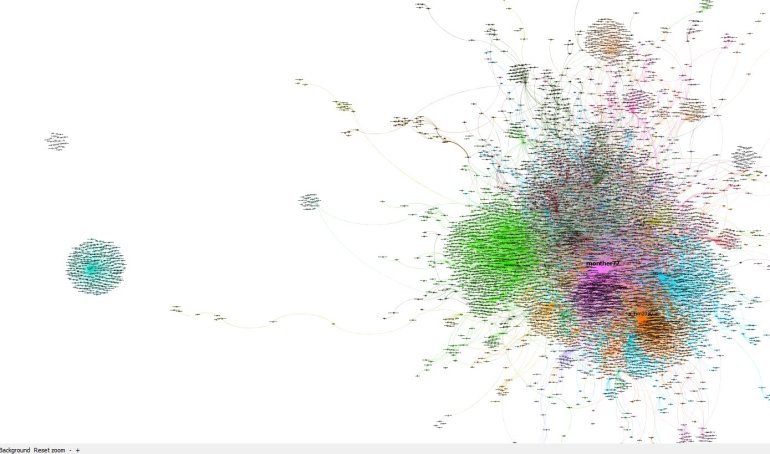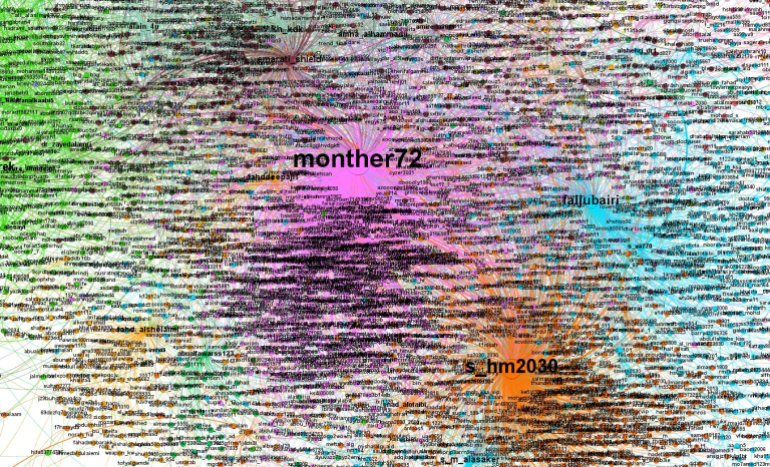Tunisia disaster prompts surge in international social media manipulation | Media News
6 min readThe political crisis in Tunisia has prompted a surge of social media propaganda and manipulation emanating mostly from Saudi Arabia and the United Arab Emirates (UAE), substantially of it attempting to skew the narrative so that it justifies Tunisian President Kais Saied’s choice to suspend parliament and sack the key minister.
Before long right after information broke of Saied’s unparalleled shift on Sunday, the hashtag “Tunisians revolt towards the brotherhood” commenced to trend on Twitter, in reference to the Muslim Brotherhood.
But as with anything on social media, specifically in the Center East, it was not straight away crystal clear no matter whether the trend represented natural general public viewpoint. And if it did, whose feeling it was?
Analysing social media
An analysis of social media data and conversations exhibits a selection of insights, these kinds of as who was creating about a certain subject matter, and whose voice is influential on that subject matter.
It can also point out wherever all those people are, and whether they are genuine folks or bots, which are phony accounts developed to manipulate public discussions through censorship and intimidation, and trend manipulation.
An examination of 12,000 tweets from 6,800 one of a kind Twitter accounts on the hashtag “Tunisians revolt in opposition to the brotherhood” disclosed a concerted effort and hard work by Gulf-based influencers to portray the actions of the president as a common Tunisian revolt against Islamist parties such as the Muslim Brotherhood.
 On the appropriate is the main cluster of Saudi and Emirati influencers utilizing the hashtag. The blue constellation on the still left displays Twitter account Fairuz and more than 200 other accounts retweeting her. The point they are disconnected points to inorganic conduct [Twitter/Al Jazeera]
On the appropriate is the main cluster of Saudi and Emirati influencers utilizing the hashtag. The blue constellation on the still left displays Twitter account Fairuz and more than 200 other accounts retweeting her. The point they are disconnected points to inorganic conduct [Twitter/Al Jazeera]The most significant occasion in Tunisia’s parliament is the Islamist Ennahdha celebration, which has accused President Saeid of staging a “coup”.
On the other hand, the greater part of users tweeting with the hashtag noted their area as being either in Saudi Arabia or the UAE.
In addition, the top rated 10 most influential accounts on the hashtag were all Gulf influencers also based in Saudi Arabia or the UAE.
These accounts included Emirati Khalid bin Dhahi, Saudi influencer @s_hm2030, Saudi cartoonist Fahad Jubairi, the Emirati author Mohamed Taqi, as well an Emirati patriotic account called emarati_protect.
 In this article you can see which accounts fashioned the most influential nodes within just the hashtags #disinformation and #influencecampaigns
In this article you can see which accounts fashioned the most influential nodes within just the hashtags #disinformation and #influencecampaignsThey pushed narratives that sought to body the president’s extraordinary actions as a preferred revolution from the Muslim Brotherhood.
Saudi influencer Monther al-Shaykh, the most influential account in the full hashtag, even named the sacked primary minister the “Khamenei of Tunisia”, putting him on a par with Iran’s Supreme Leader Ayatollah Ali Khamenei, whom Saudi Arabia has demonised.
The exclusively anti-Muslim Brotherhood narrative clearly demonstrates the foreign and domestic procedures of the UAE and Saudi Arabia, which have been inexorable in their crackdown on Islamism and the Muslim Brotherhood during the Center East.
 Police officers stand guard as supporters of Tunisia’s president, Kais Saied, gather outdoors the parliament setting up in Tunis [Zoubeir Souissi/Reuters]
Police officers stand guard as supporters of Tunisia’s president, Kais Saied, gather outdoors the parliament setting up in Tunis [Zoubeir Souissi/Reuters]Al-Shaykh has been recognised for his outsize purpose in monopolising Arabic Twitter narratives. He has obtained a popularity as a primary influencer spreading disinformation and nationalist propaganda on Arabic Twitter.
In analysing the hashtags in the aftermath of the murder of Saudi journalist Jamal Khashoggi in 2018, one review by Harvard teachers Alexei Abrahams and Andrew Leber documented that on a hashtag linked to Khashoggi, retweets of al-Shaykh accounted for 8 percent of all retweets – and there were 365,000 users on that hashtag.
Very last year, al-Shaykh, along with several UAE-centered journalists, attempted to thrust a phony narrative that there experienced been a coup in Qatar. Saudi Arabia and the UAE, alongside with Bahrain and Egypt, imposed a blockade on Qatar in June 2017. But in January this calendar year, the blockading countries agreed to restore ties with Qatar.
Many of the other accounts spreading propaganda about Tunisia are also normal members in regional disinformation campaigns.
Cartoonist Fahad Aljubairi and s_hm2030, were being really lively just after a suspected Pegasus spyware infection resulted in several Gulf-dependent accounts spreading private hacked photographs to smear Ghada Oueiss, a prominent Doha-primarily based news anchor at Al Jazeera Arabic.
Bots and sock-puppets
In addition to this, a person of the most influential of the 6,800 accounts on the hashtag experienced the manage, @7__e7, and the name Fairuz.
Investigation of the account, whose posts were being retweeted hundreds of situations, showed it was pretend, and her tweets on the hashtag contained an unrelated “comic” video of a particular person slipping out of a auto although reversing.
However, although Fairuz was technically one of the most influential accounts on the hashtag, none of the accounts retweeting her was serious.
10/ The beneath GIF displays how the network close to Fairuz tweets at speed (higher velocity). Glance at the yellow cluster at the bottom. It goes from the original tweet by fairuz to more than 200 retweets in a five minute window. This is indicative of manipulation #Tunisia #disinformation pic.twitter.com/52xSuM15gm
— Marc Owen Jones (@marcowenjones) July 26, 2021
They were being sock-puppets – hacked or phony accounts programmed to automatically retweet content material, examination of the accounts showed.
A person illustration was the account of a 14-year-outdated Filipino lady, and one more particular person with the name Emma Roberts, who experienced a image of a Smurf as their exhibit graphic.
Working with hacked Twitter accounts for advertising and marketing and promoting is common, but it is also utilised for spreading propaganda in the MENA area, significantly all through big political occasions.
Hugely retweeted faux accounts generally aspect in the prime tweets section of Twitter, growing the salience of propaganda to those studying the news.
Fairuz’s tweet garnered far more than 200 retweets within just five minutes, a speed so fast it strongly suggests automation.
Fairuz’s account was suspended by Twitter past night time after a thread about her went viral.
Tunisian street
Yrs of analysing propaganda hashtags have exposed a common roster of names and influencers that variety a Gulf Twitter elite dependent largely in the UAE and Saudi Arabia. This elite monopolises Arabic political discussions on Twitter with hyper-nationalist tropes.
These influencers are augmented by trolls and bots who distribute propaganda and intimidate critics.
The hashtag “Tunisians protest versus the Muslim Brotherhood” represented no evidentiary declare or grassroots movement, which does not mean that there are no Tunisians who keep that see.
 Assessment of Twitter accounts demonstrates it is mostly Emirati and Saudi influencers who are pushing the anti-Brotherhood hashtag. The most retweeted and influential accounts are monther72, faljubairi and s_hm2030 and emarati_shield [Twitter/Al Jazeera]
Assessment of Twitter accounts demonstrates it is mostly Emirati and Saudi influencers who are pushing the anti-Brotherhood hashtag. The most retweeted and influential accounts are monther72, faljubairi and s_hm2030 and emarati_shield [Twitter/Al Jazeera]It is, having said that, distinct that Tunisians on Twitter ended up not reporting en masse that they ended up rebelling versus the Brotherhood.
Instead, it was propagandists speaking on behalf of Tunisians, trying to encourage community and worldwide audiences that the Muslim Brotherhood signifies an existential risk and that liberation from them is a justification for a return to authoritarianism.
This electronic playbook highlights that social media is normally not the democratising space exactly where voices are equivalent, especially in the Center East in which authoritarian regimes, alongside with their recognized skill to surveil and digitally monitor dissidents, coupled with their willingness to kill and arrest critics, has frightened people today into silence.
Usually, this silence types a vacuum, which is then loaded with co-opted influencers who repeat govt chatting factors and distribute point out propaganda with little contestation.







